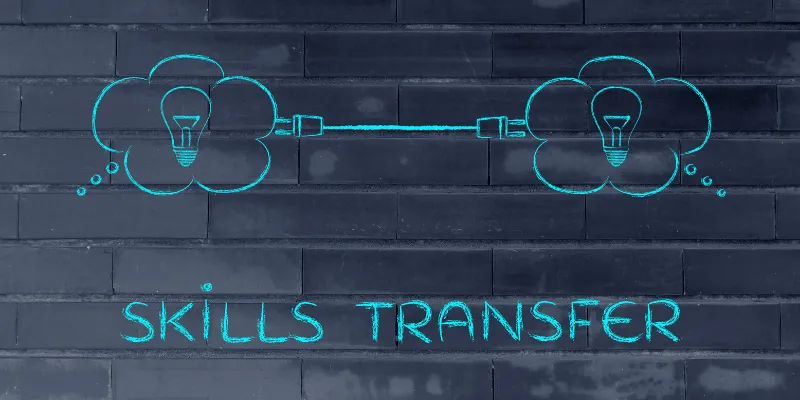Why transferable skills are so relevant in the COVID-19 era
Transferable skills such as leadership, listening, prioritisation, research and analysis, time management, and delegation can help you make a valuable contribution to any team and workplace.

The world we’re living in is more flexible and fluid than it was before – and professionals are expected to be the same. Hence the slow and steady rise of transferable skills, otherwise known as “soft skills”.
With the rise in technology and new job roles that didn’t exist just a decade before, more and more employers are looking for talent that is proficient in teamwork, listening, and leadership just as much as they are in the technical aspect of their job.
What do we define as ‘transferable’ skills?
The tricky thing about transferable skills is that they’re not just something that can be read about and instantly learned –they take time and experience to master. They’re a core group of skills that can then be used in the workplace, hobbies, and even daily life.
Most often, the most common transferrable skills are leadership, listening, prioritisation, time management, delegation, and research and analysis.
Why are they important?
The importance lies in the very name “transferable”. Once learned, these skills then help make the person a valuable contribution to any team and workplace.
Employers look for people who can demonstrate the ability to empathise, connect with other people, forge meaningful, lasting professional relationships, and navigate workplace conflict and complications with diplomacy, understanding, and ease.
What makes them more relevant than ever during COVID-19?
We were already living in a world that was changing in the blink of an eye. With COVID-19, change has been happening even faster than anyone could have predicted.
Like a scenario straight from a movie script, entire countries have had to lock down and implement new rules overnight –forcing us to adjust and adapt to a way of living we couldn’t have imagined just a year ago.
We’ve all had to be flexible and adaptable. We’ve had to be good listeners to the newest updates, and also carefully research and analyse information on the virus. All of these skills are just as important in the workplace.
Going forward, things are going to be very different in our restaurants, hotels, stores and offices for the near future – and employees who can adapt fast, listen well, and think critically will be more important than ever before.
Tensions are naturally running high, and it’s okay to feel a little lost – so who would make a better leader right now? Someone who fails to connect with other people, or a compassionate person who can see the other person’s perspective and guide them into doing their best and lead a team to success?
Transferable skills – people skills – are more important than ever in a time where humanity has to come together and work as a single unit to overcome a problem as big as this. We all have to demonstrate more compassion, more understanding and more flexibility to change than ever before if we want to succeed as a country, a society, a community, a company and as individual people.
How can you work on developing your transferable skills?
You don’t always have to attend special workshops or webinars to upskill yourself (although there’s no harm in taking advantage on the huge offering of free webinars available right now).
Building transferable skills takes time, but the process doesn’t need professional tools to begin with. All it takes is a conscious effort to understand the people around us more, and be more aware of what’s happening in the world.
Next time you’re having a debate, take the time to understand the other persons position. Make an effort to really listen to your friends or parents when they are sharing a problem or story with you.
Accept more opportunities or chances to help others in your daily life, or squeeze in one more thing into your daily schedule – and wonder why you didn’t do so earlier.
You’ll realise you empathise with people in your life more. You take more initiative. You don’t take everything at face value, and you get to the bottom of an issue before forming an opinion. You keep your temper in check and you hear both sides of the story before speaking.
All round, you’ll find more balance in your life, and will feel more confident and in control of what life throws at you. Building these skills is a gradual process, but the first step towards doing so can be done as soon as you’ve finished reading this article.
Edited by Teja Lele
(Disclaimer: The views and opinions expressed in this article are those of the author and do not necessarily reflect the views of YourStory.)









